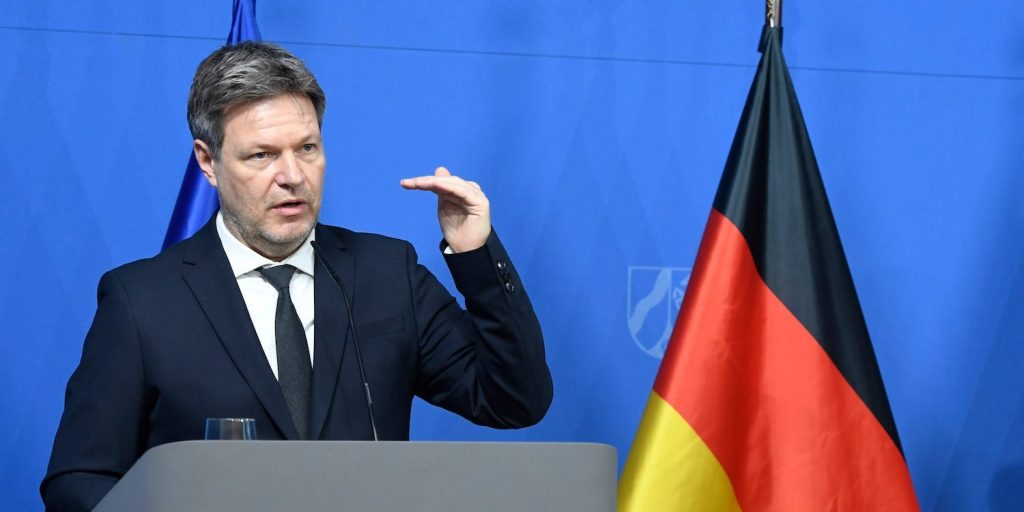- Germany's gas reserves are at 80% and are on track to meet its 85% target early next month, an official said.
- It's a major win for Germany, which previously sourced 32% of its natural gas from Russia.
- But still, the EU needs to boost supply reserves to at least 90% to have a safe winter, the IEA has warned.
Germany's natural gas storage has reached 80% and the nation is on track to meet its October storage targets early, according to a German official.
That's a major win for Germany, which was highly dependent on Russian gas prior to the invasion of Ukraine. The country previously sourced 32% of its liquefied natural gas from Russia, according to Reuters – and has been slammed amid supply cuts to the Nord Stream 1 Pipeline, which is currently flowing at 20% capacity.
But the country is finding success in weaning itself off Russian LNG, economy minister Robert Habeck said to Bloomberg in an email, and the nation will be on track to meeting its October target of 85% gas storage early next month. Reserves are currently at 82% as of Monday, according to Federal Network Agency.
"It's a very challenging situation and big savings are definitely still needed, but we are prepared as a country," Habeck said, noting that gas companies would be able to access the storage this winter, particularly if Russia strikes Europe with a total gas cutoff.
Russia's Gazprom is already planning a surprise three-day shutdown of Europe's main gas line starting this Wednesday, but Habeck thinks Germany's gas storage will have reached the 85% target by then.
But it isn't a victory for Europe just yet: The International Energy Agency has said collective storage for the entire European Union would need to reach 90% in order to ensure a safe winter, and EU storage was only at 67% at the beginning of the month, according to the most recent data from Energy Monitor.
Even if the EU reaches the 90% target, countries will likely face increased risk of supply disruptions in event of a total cutoff from Russian gas, the IEA said, leading to heightened uncertainty this winter.
